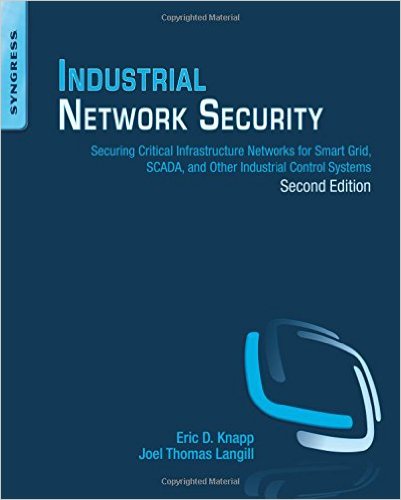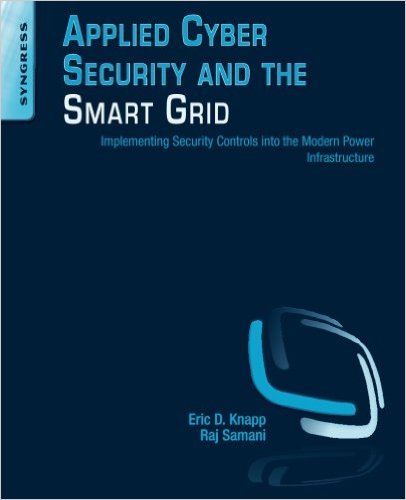| Instructor: Dr. Raheem Beyah | |
|---|---|
| Office | Klaus 2308 |
| Office hours | By appointment |
 |
|
| Head Teaching Assistant: Srikar Durbha | |
|---|---|
 |
|
| Teaching Assistant: Derek Thayer | |
|---|---|
 |
|
| Teaching Assistant: Uday Kiran Ravuri | |
|---|---|
 |
|
When: Up to you!
Where: All over the world!
| Instructor: Dr. Raheem Beyah | |
|---|---|
| Office | Klaus 2308 |
| Office hours | By appointment |
 |
|
| Head Teaching Assistant: Srikar Durbha | |
|---|---|
 |
|
| Teaching Assistant: Derek Thayer | |
|---|---|
 |
|
| Teaching Assistant: Uday Kiran Ravuri | |
|---|---|
 |
|
The course covers introductory topics in cyber-physical systems security. The goal is to expose students to fundamental security primitives specific to cyber-physical sysytems and to apply them to a broad range of current and future security challenges. Much of the course is taught with the focus on one instance of cyber-physical sytems - industrial control systems. However, students will be expected to generalize the concepts for other cyber-physical systems.
Students will work with various tools and techniques used by hackers to compromise computer systems or otherwise interfere with normal operations. Students will also use tools that are uniques to interacting with cyber-physical systems. The purpose of the class is NOT to teach you how to be a hacker, but rather to teach you the approaches used by hackers so you can better defend against them. Students will be graded based upon exams and completion of assignments.
Policy on Commenting Software:
Fully commenting code, even code that you were given as a starting point is mandatory. This is one of the instructor’s pet peeves. You must fully comment all code you turn in and must include comments to explain all of the code you turn in. (Even those parts of the code you did not write but were given as a starting point). You must include in the comments an explanation of what the purpose of the code is, the date the code was originally written, and the date the code was last modified must be in the comments. The last date modified must be correct and in the comments.
Policy on Handouts:
The handouts can be downloaded from the T-Square which which requires authentication. Handouts with proprietary or copyrighted material will be put on the protected page and should not be made publicly available by students.
Prerequisites: computer networking class, information security class, and programming experience.
There are two required textbooks. We cover lots of really good material and no one textbook has it all. These are excellent references and will serve you well in future jobs or research projects. We will also occasionally review conference and journal publications.
 |
Industrial Network Security, Second Edition: Securing Critical Infrastructure Networks for Smart Grid, SCADA, and Other Industrial Control Systems (2nd Edition), by Eric D. Knapp and Joel Thomas Langill, ISBN: 978-0124201149 |
 |
Applied Cyber Security and the Smart Grid: Implementing Security Controls into the Modern Power Infrastructure (1st Edition), by Eric D. Knapp and Raj Samani, ISBN: 978-1597499989 |
|
|
|||||||||||||||||||||||
Responsibility for Material:
Students are responsible for all material in assigned sections of texts and other materials, even if not explicitly covered in lecture. Students are also responsible for all material covered in lecture.
Exams, Makeup Exams, and Incompletes:
All exams are closed book. However, during exam 1, students can bring a single-sided (one side must be blank), 8.5 x 11, handwritten note sheet. During the final exam, students can bring two single-sided (one side of each paper must be blank, or one double-sided sheet), 8.5 x 11, handwritten note sheets. As a rule, makeup exams will be offered at the discretion of the professor and only for scheduled absences that are requested in writing at least one week in advance. Medical emergencies are the only exception to this rule and in case of such an emergency, the student must contact the professor as soon as possible to discuss the makeup. Incomplete grades will be given only in extraordinary circumstances.
Late Turn-in and Re-grading:
Assignments can be turned in two days after the due date and will be subject to a 20% penalty. The grade for the assignment will be zero after this window.
Exams will not be considered for re-grading later than the next class period after they are returned. Re-grading requests should be submitted in writing with a specific explanation of the possible grading error. Photocopies of completed exams will be made by the instructor prior to returning them.
Academic Honesty:
Although students are encouraged strongly to communicate with each other to assist in learning the course material, all students are expected to complete course work individually (unless instructed otherwise), following all instructions stated in conjunction with exams and assignments. All conduct in this course will be governed by the Georgia Tech honor code. Additionally, it is expected that students will respect their peers and the instructor such that no one takes unfair advantage of any other person associated with the course. Any suspected cases of academic dishonesty will be reported to the Dean of Students for further action.
A tentative schedule of lectures (subject to change) is provided below.
Class Deliverables
Topic(s)/Lecture(s) to watch:
Required Readings/Activities:
Recommended Readings/Activities:
Topic(s)/Lecture(s) to watch:
Required Readings/Activities:
Recommended Readings/Activities:
Topic(s)/Lecture(s) to watch:
Required Readings/Activities:
Recommended Readings/Activities:
Topic(s)/Lecture(s) to watch:
Required Readings/Activities:
Recommended Readings/Activities:
Topic(s)/Lecture(s) to watch:
Required Readings/Activities:
Recommended Readings/Activities:
Topic(s)/Lecture(s) to watch:
Required Readings/Activities:
Recommended Readings/Activities:
Topic(s)/Lecture(s) to watch:
Required Readings/Activities:
Recommended Readings/Activities:
Midterm Exam Pick a 50 minute window during this block
Topic(s)/Lecture(s) to watch:
Required Readings/Activities:
Recommended Readings/Activities:
Topic(s)/Lecture(s) to watch:
Required Readings/Activities:
Recommended Readings/Activities:
Topic(s)/Lecture(s) to watch:
Required Readings/Activities:
Recommended Readings/Activities:
Topic(s)/Lecture(s) to watch:
Required Readings/Activities:
Recommended Readings/Activities:
Topic(s)/Lecture(s) to watch:
Required Readings/Activities:
Recommended Readings/Activities:
Topic(s)/Lecture(s) to watch:
Required Readings/Activities:
Recommended Readings/Activities:
FINAL EXAM Pick a 2 hour 50 minute window during this block